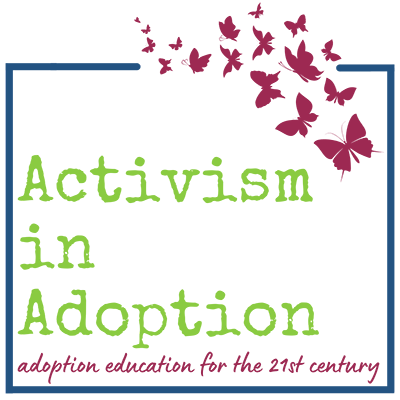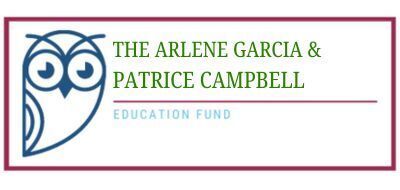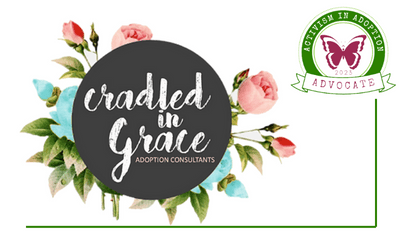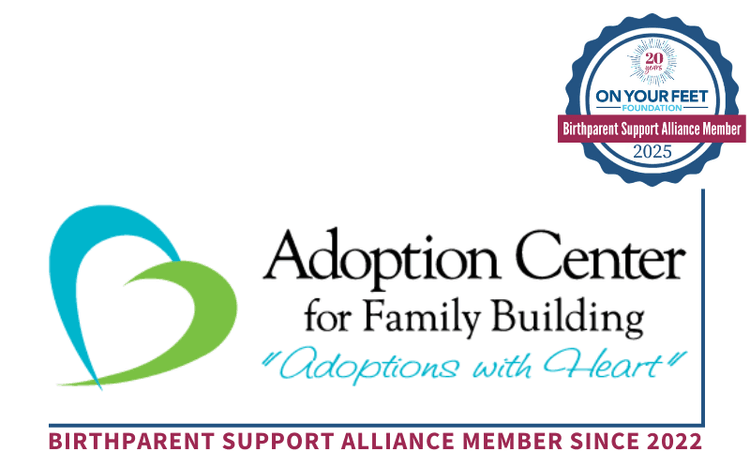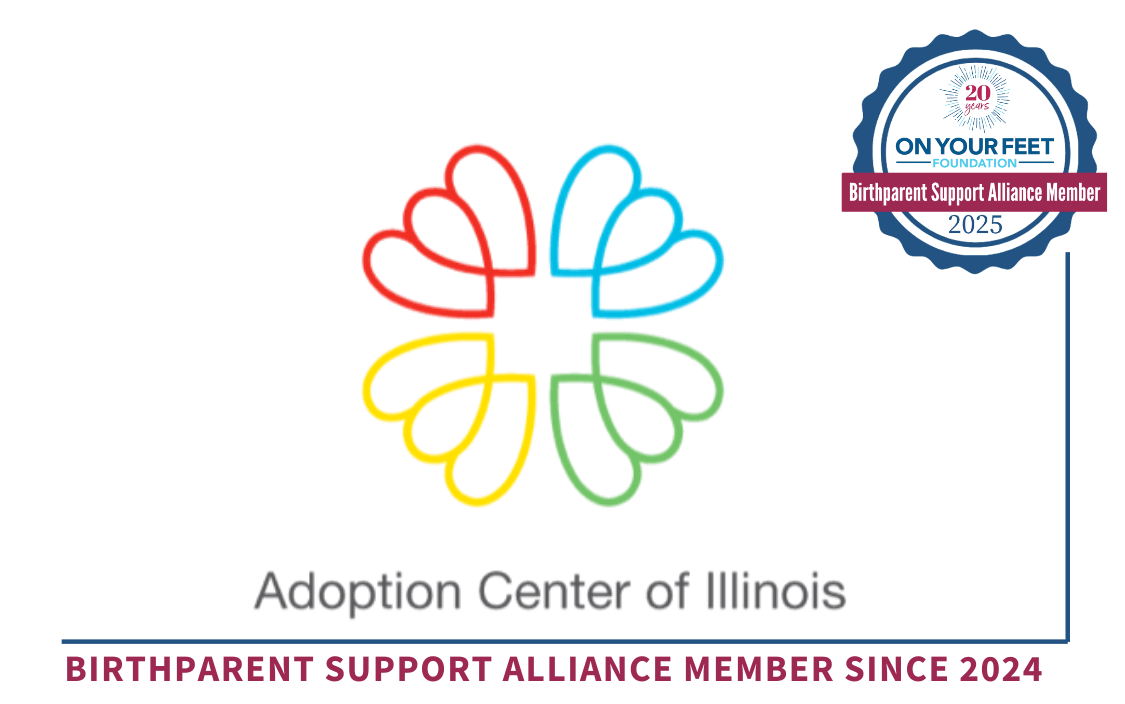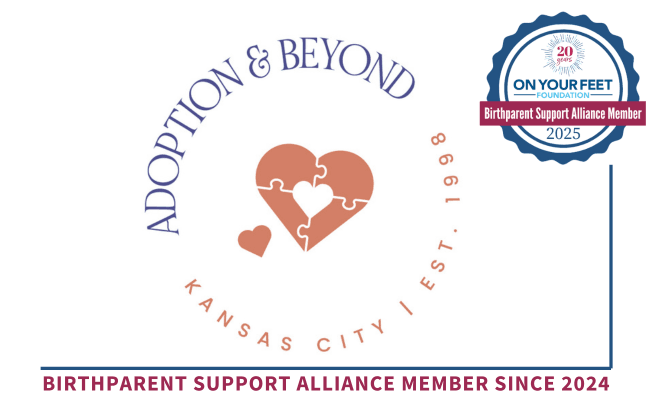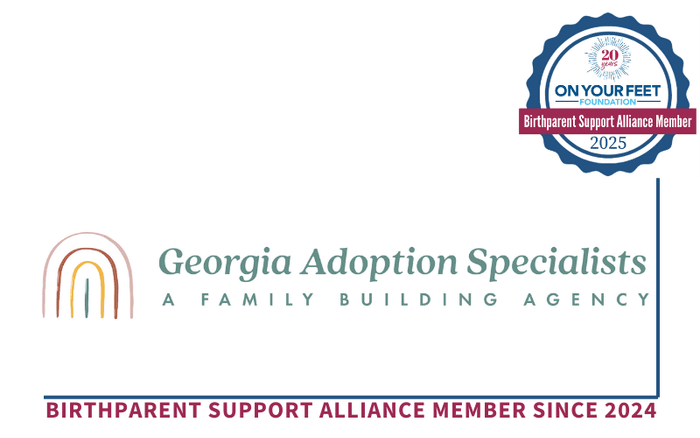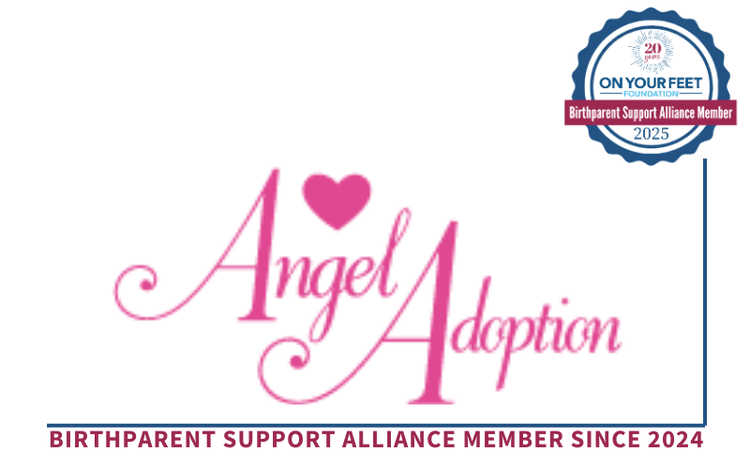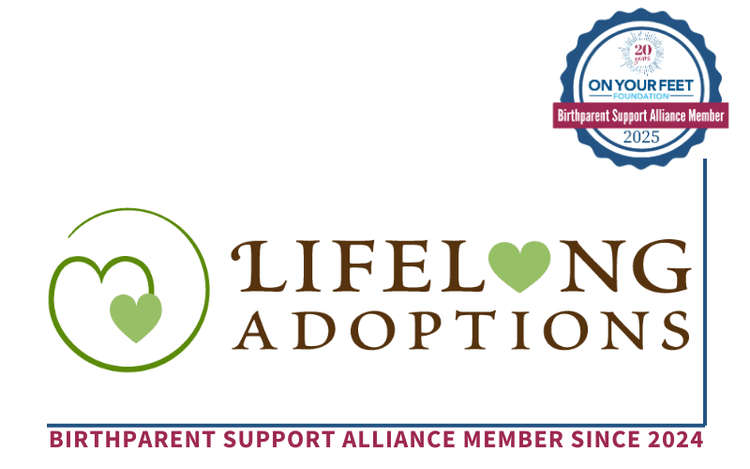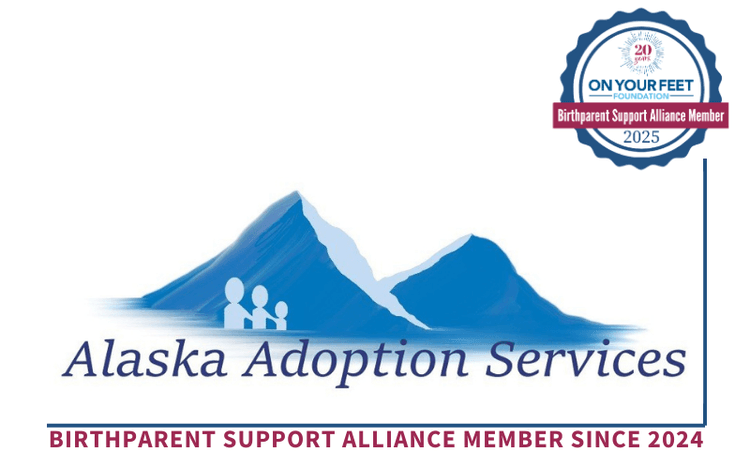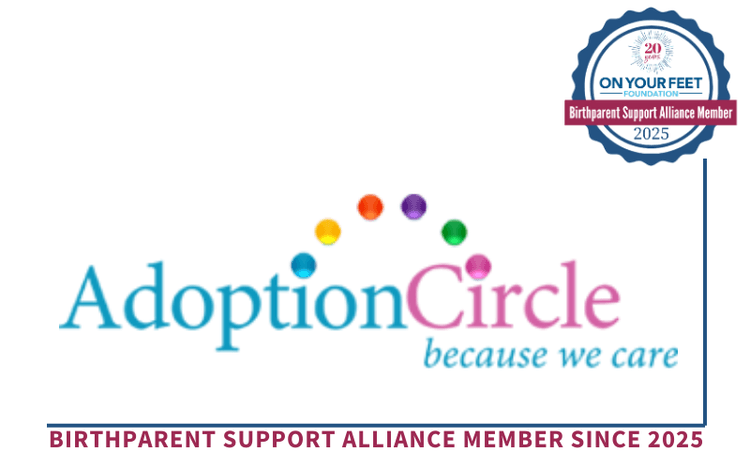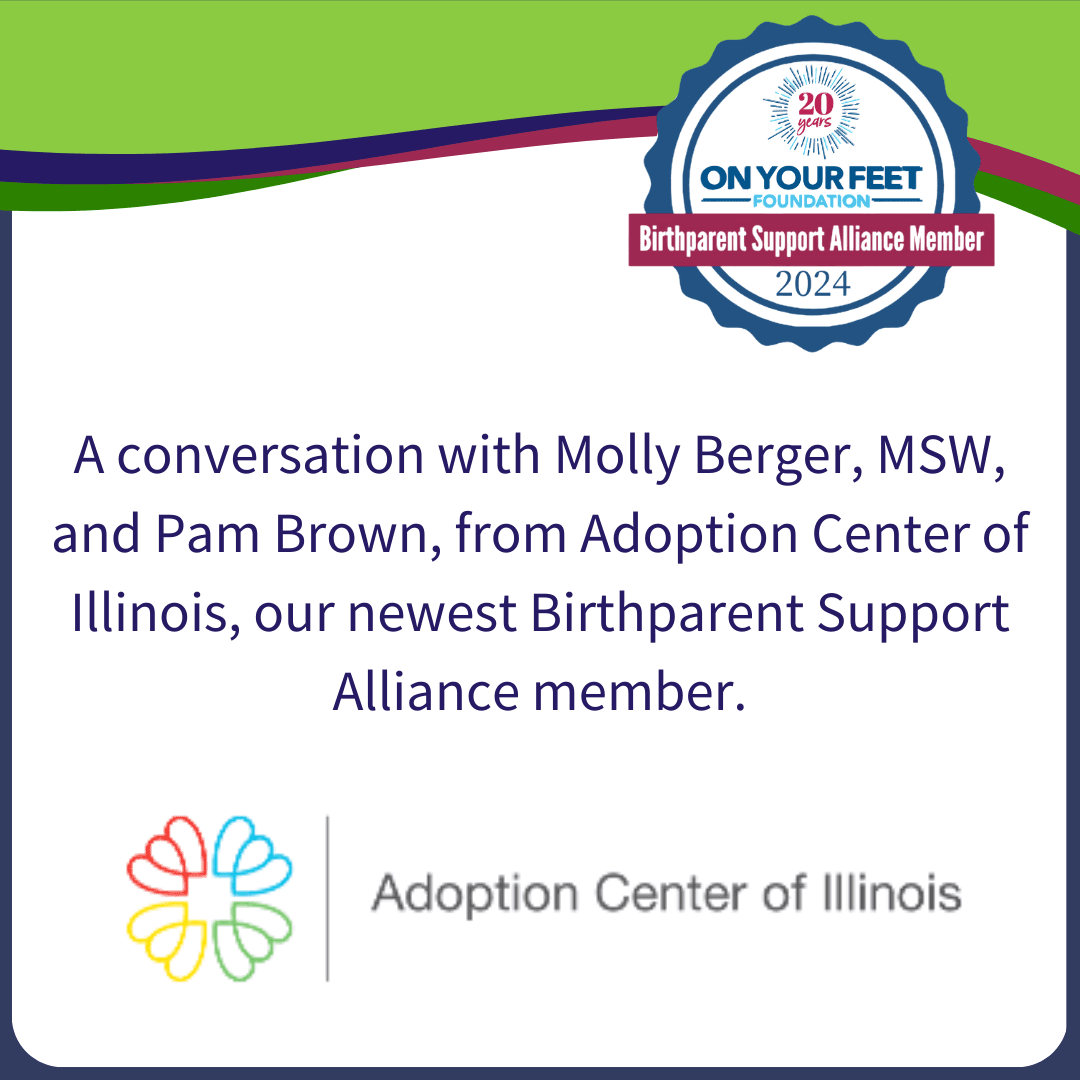
On Your Feet Foundation launched the Birthparent Support Alliance in 2022, to provide adoption professionals a way to ensure the birthparents they worked with were receiving lifetime access to the most comprehensive care available, and the response has been incredible. We recently had the opportunity to sit down with Molly Berger, MSW, and Pam Brown, from Adoption Center of Illinois, who joined the Birthparent Support Alliance in 2024, to learn more about the work they do, and to get a fuller understanding of how their agency moved past the idea of adoption being either open or closed, and instead built the Extended Family Network model, an entirely new paradigm for relationships within the adoption constellation.
Let’s start with the basics: who are you both, and how are you connected to adoption?
I'm Molly Berger. I am an adoption social worker at Adoption Center of Illinois (ACI). I've been at the agency for 10 years, and as for my personal connection to adoption, I have a cousin that was adopted. That kind of sparked a curiosity in me about adoption, and the whole process of it. It was very much hush hush. And then as I grew older, I just had a passion for child welfare. I'm a foster mom.
I'm Pam Brown. I'm an expectant parent counselor at the agency since 1991, so many years of experience. My personal connection to adoption is my mom. Her biological father chose not to be involved in her life. She was raised for her first 5 years by my grandmother as a single parent. When my grandmother remarried my grandfather adopted my mom. I did not have extensive knowledge about adoption until I started this job. I am still learning to this day. It never stops.
The ACI website talks about creating an alternative vision of adoption. Can you tell us a bit more about that?
[MOLLY] Our founder, Richard Pearlman, founded the agency on the belief that there was a better, more ethical approach to adoption. With a group of birth parents, adoptees, and adoptive professionals, they sought to create a new agency with the foundation of empowering expectant parents to know their rights and be the ones creating their adoption plan. We were the first agency to allow expectant parents to choose the adoptive family, a practice that was unheard of at the time. So much of the history of adoption is focused on the adoptive family and building their family. Our job isn’t to find children for adoptive families, but it’s to find adoptive families for children.
[PAM] He also challenged the view that closed adoption was “best practice” and that there needed to be a separation between birth family and adoptive families leaving the adoptee in the middle to feel the need to choose a side. He challenged that there should be more communication between birth parents and adoptive families. From this, there was the creation of a new paradigm in which adoptive and birth families come together, which grew out of Family System Theory and formed into what we now practice as the Extended Family Network.
How does this new approach to adoption inform your work today?
[MOLLY] I think it informs what we do in every way, because it is the foundation of everything we do. You must believe in it wholeheartedly to work for our agency. When we talk about empowering families, people often assume we are talking about adoptive families, but we are talking about birth families, too, and about adoptees, and about empowering the entire constellation to make decisions that are best for them, because at the end of the day, while we are adoption professionals, we can’t tell anyone what is best for their life. Only they know that. Pam and I say all the time when we work with expectant parents, that we only know a fraction of their lives, and the dynamics in their lives, and so the foundation of the work we do—whether it be with adoptive families, birthparents, adoptees—it’s always about empowering them to make the decision that is best for them. And the only way we can do that, and help them, is by educating them, letting them know every single option, giving them the resources they need so that they feel like they know every single option available to them, and then they can make the decision that feels best for them.
[PAM] From the start, ACI held the belief that everybody is best able to manage their own lives. We aren’t here to tell them what to do, but we are here to help educate them and give them the tools and resources that they need to make a well-informed decision, and to make the whole process, however it ends up, work for them. Our motto has always been “our help, your decisions.”
Can you expand on the Extended Family Network concept?
[MOLLY] The Extended Family Network views anybody connected to the adoptee as part of a larger extended family. Again, it’s viewing everyone as a connected instead of separate. We compare it to two people getting married. When you get married, you don't say, okay, I love you, but I'm not going to talk to your family. You're only going to talk to mine. Everybody comes together to love this child, to help them understand who they are and where they come from.
How does the idea of creating an extended family network in adoption instead of using the more common ‘open versus closed’ model, guide you in your work with adoption today?
[MOLLY] We don't use the terms open and closed adoption. If you asked 50 different people, what's an open adoption, you're going to get 50 different answers. It’s just an ill-defined concept of what the relationship is or should be. So instead, we talk about it more in terms of the style of communication that you want, or how much communication you want with the family. The Extended Family Network also acknowledges that even in “closed” adoptions, during periods of silence, the relation is still there. “Closed” adoptions don’t erase the biological family. When there is no communication with a birth family, you still talk about adoption to your child, this child still knows they're adopted. The Extended Family Network recognizes the complexities of these lifelong relationships. Relationships change over time. Sometimes there may be periods of silence, others there may be a lot of communication. And at some point, usually around 7-years-old, there’s a shift of focus to what the child wants.
[PAM] It’s also not just about helping adoptive families expand their view of relationships. When we work with expectant parents, we challenge their thinking surrounding what they know of “open vs closed” adoption. Going back to everyone can decide what is best for themselves, they have every right to choose how their communication in their adoption plan will be initially, however, we like to help them look at the bigger picture and help them see what the future can hold, because open adoption might be scary to them, or they might not feel like they're ready for it, but I still think we have to educate them to look at all possibilities. It’s hard to predict what you want your relationship to look like when this little baby is no longer a baby.
It sounds very child-centered, helping the parents all understand how to build a relationship with each other.
[MOLLY] I talk to my adoptive families all the time about this, when they ask how do we have this relationship? And again, when you liken it to every other relationship in your life now, it starts to feel so much more manageable. It’s so easy to overthink the relationship because it is so significant, and because you want to be so respectful. I think what we see most of the time is both adoptive families and birth families overthinking it, and that's where they stumble, because they're just overthinking it too much. You never know unless you ask. So, instead of overthinking and wondering, am I sending too many pictures? Why not just ask them?
Do you also work with birthfathers?
[PAM] If they want to be involved, of course we do. We’re going to make sure that they have the information that they need and can feel supported. We want them to know what their rights are, and they can also have as much communication with the adoptive family that works for them, and access to any services that they need. If they are involved, we're doing the same education with them that we have with the mom.
[MOLLY] We also give parents the option of working separately if they are not working well together. The expectant father can also look at potential adoptive parent profiles and create their own communication plans. They don’t have to have visits [with their child] on the same day or time, if that isn’t going to be beneficial for everyone involved. We can also talk about this question in terms of ethics. I think expectant/birthfathers are seen as a problem a lot of times, and it isn’t uncommon that expectant mothers are told to just not name the father so nobody has to deal with him, or because he might throw a wrench in the process, but it shouldn’t be that way. They have just as many rights as expectant mothers and birthmothers do. We need to be fighting the stigmas against expectant fathers and birthfathers.
Why did ACI join the BSA?
[PAM] Because it's the best decision for our birth parents. We want to be able to offer support for our birth parents to a very high standard. To do that, I think it is crucial we be here, this alliance can provide that support. In joining the alliance, we can be assured that our birth parents will get whatever support they need at that high standard level. Ethically it’s the right thing to do.
[MOLLY] I think that good post-placement support is a full-time job. And with nonprofits, we're already wearing so many hats that we can recognize that post-placement support is oftentimes an area that can be really challenging to do in ways that we feel are adequate, and that is a complete disservice to our birthparents and the birthparent community. We are there 100% for our birth parents now and forever, so they can always come to us, at any point in time. We've always paid for therapy, no matter when they placed—there's no timeline, there's no limitations—we will always meet with them, will always talk with them, will always help with communication. We recognized that model has us waiting for them to come to us. And when it's that approach, we are counting on them proactively seeking help. By joining the Birthparent Support Alliance, we have On Your Feet Foundation giving them the full attention that they deserve, and they can be the ones that are continuously checking in on our birthparents. It’s also so beneficial to provide birth parents neutral support because we also have to recognize that we are connected to the hardest parts of their adoption journey. Having an adoption-neutral space that they can go to where they don't feel obligated to speak highly about adoption, or their own adoption, and where they can just go and be themselves, and join a community of people who just get it; that’s a really important part of healing.
Grief is tough, and the disenfranchised grief so many birthparents face makes it even tougher. How does ACI help birthparents deal with disenfranchised grief?
[MOLLY] For most people, it’s hard to understand that birth parents feel grief and loss after placing a child for adoption because it was a choice they voluntarily made. So many of our birth parents don’t even understand how they can feel adoption is the right choice for their child but still feel sad. Part of our job is to help everyone (birth parents, adoptive families, and adoptees) understand grief. There’s this quote we were just talking about, that goes, grief doesn't disappear, but you learn and build tools to help your jar surrounding grief get bigger. Sometimes your grief may be filling your jar halfway, other times it might be smaller; but your grief is always going to be there. With lifelong grief, birth parents deserve lifelong support.
To learn more about Adoption Center of Illinois, visit their website, or check them out on Facebook, YouTube, and Instagram. Membership for the Birthparent Support Alliance onboards quarterly, and there is still limited space available for 2024. If you are an adoption professional who wants the birthparents you work with to receive the kind of comprehensive care they need to heal, and to be able to build strong, healthy relationships within their adoption triad, drop us a line; we'd love to talk.
